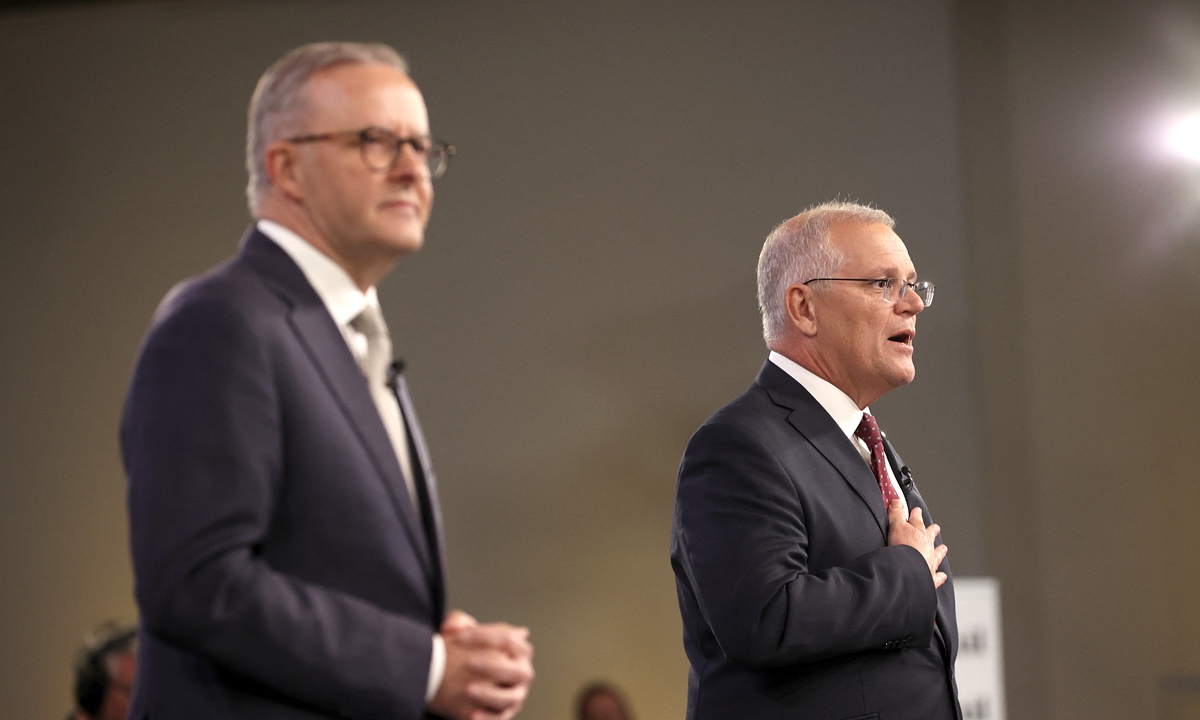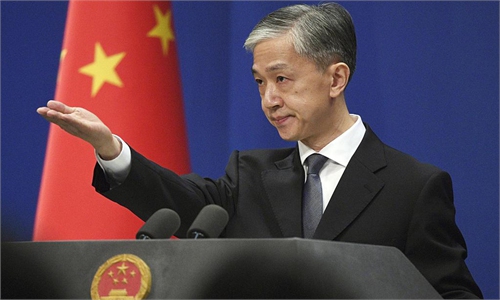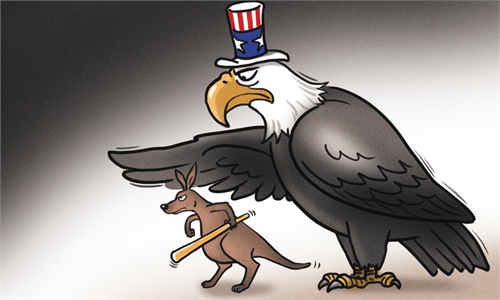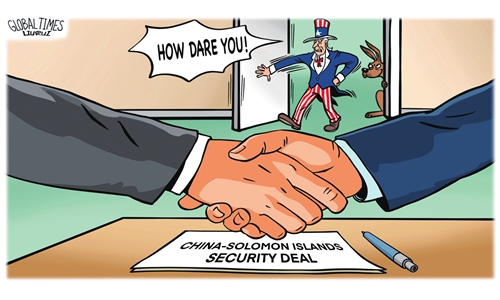Australian politicians play 'China card' ahead of election; 'no illusion' for China on them

Leader of the Opposition Anthony Albanese (L) and Australian Prime Minister Scott Morrison attend the first leaders' debate of the 2022 federal election campaign at the Gabba on April 20, 2022 in Brisbane, Australia.
As the 2022 Australian federal election approaches, both Prime Minister Scott Morrison's administration and opposition politicians are playing the "China card" hard to undermine their opponents. Chinese experts said that Beijing should have no illusions about Canberra, given the political influence from the US and the likely continuation of Morrison's rude China policy.The foreign affairs spokesperson of Australia's opposition Labor Party Penny Wong on Tuesday vowed the party will establish a "Pacific defense school" to train neighboring armies in response to "China's potential military presence on the Solomon Islands," Australia's ABC News reported.
According to the media, the Labor Party also promised to spend an additional AU$525 million ($379 million) over four years on aid to Pacific countries plus East Timor.
Labor's words came after Australian Defense Minister Peter Dutton's remarks, in which he compared China and Russia to Nazi Germany before World War II, and brazenly said Australia can only "preserve peace by preparing for war," Australian media reported Monday.
"Certain Australian politicians often seek selfish political gains by making wild remarks to smear China and clamor for a war. Such despicable moves are seen through by the Chinese people and the international community," Chinese Foreign Ministry spokesperson Wang Wenbin said at a press briefing on Tuesday.
China is increasingly becoming a card or weapon in Australia's election campaign as ties deteriorated in recent years. On the one hand, Australia followed the US' constant provocations to suppress China. On the other, Pacific island countries, which used to be neglected, have become a factor in China-Australia relations in recent years, analysts said.
There is a structural contradiction between Australia's Monroe Doctrine policy and China's development of Pacific island relations, Ning Tuanhui, an assistant research fellow at the China Institute of International Studies, told the Global Times on Tuesday.
Ning noted that Australia regards the South Pacific region as its backyard, and tries to interfere with affairs of Pacific island countries in their practical cooperation with other countries.
China announced the signing of a security pact with the Solomon Islands last week, stressing a mutually beneficial cooperation instead of sensitive military alliance.
Targeting Morrison, Labor said the pact is Australia's "biggest policy failure in the Pacific since World War II." On April 21, Morrison attacked Labor's Anthony Albanese for "taking sides with China."
Ning said that smearing China is essentially a tool of Australian recriminations during the election. Moreover, he noted that the two Australian parties take increasingly similar stance on China affairs, behind which must be the coordination from Washington.
"To some extent, the US has entrusted the South Pacific to Australia," said Ning, "The US still dominates in regional security, even though it seems to give little attention to the region."
The expert said China's cooperation with the Solomon Islands has created a sense of crisis in both the US and Australia, which thinks that if China builds a military base in the Solomon Islands, it is tantamount to "breaking off the blockade of the 'second island chain.'"
Experts said Labor had emphasized engagement and communication in its China policy, but the two parties have found some common ground on being tough on China since the deterioration of China-Australia and China-US relations in 2016. "Beijing should not have expectations for any of them, but it is certainly willing to be engage if Canberra sends positive signals," Ning said.




